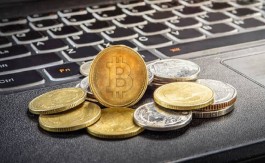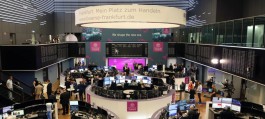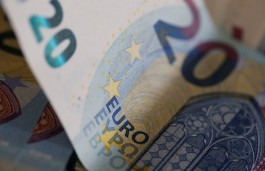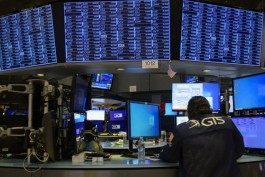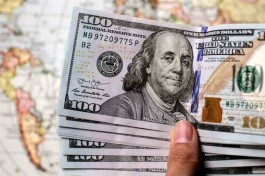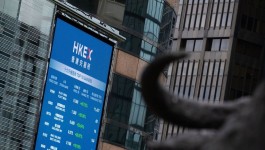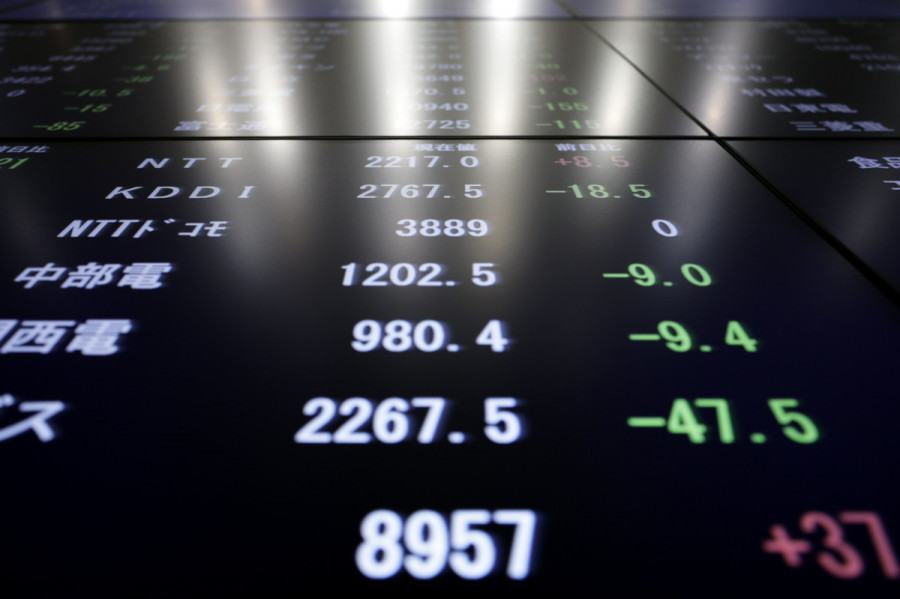Asian stocks fell on Wednesday, led by a decline in stocks in Hong Kong as investor confidence was negatively affected by weak manufacturing activity in China, which was deteriorating mainly due to the risk of a US default on its debt.
The Hang Seng fell almost 1.7% after the PMI fell from the month of May, raising concerns about the weak economic recovery in China, which has negatively affected stock and currency markets. The yuan has continued to lose in the recent period.
South Korea's benchmark Kospi index resisted pessimism and headed higher in a bull market, driven by foreign investors' purchases of chipmakers and electric vehicle supply chain stocks.
Goldman Sachs expects a massive recovery in the semiconductor sector next year, which will boost profits for South Korean companies.
Timothy Moe, head of Asia-Pacific equity strategy at Goldman Sachs, said on Bloomberg TV: “The market is heading for a bottom out this year until it recovers next year.
He added that the easing of investment positions by global investment institutions strengthens the reasons for us to expect strong gains.
Oil prices maintained their biggest drop in four weeks amid signs of weak demand and ample supply ahead of the next meeting of OPEC+ members.
The contracts of the Standard & Poor's 500 and the Nasdaq 100 were unchanged. On Tuesday, energy stocks negatively affected the S&P 500, with US oil prices falling below $70 a barrel. Prices continued below $70 in the first hours of Asian trading.
US oil falls below $70 a barrel with abundant supply
The artificial intelligence boom
The Nasdaq 100 rose 0.4% on Tuesday extending its year-to-date rally to 31%, while ending the day below its high as investors assessed the hype surrounding artificial intelligence that drove the index higher. NVIDIA's market value approached $1 trillion after announcing many products related to artificial intelligence.
AI-related app makers are now poised to reap what Nvidia has done, according to Cathy Wood, chief executive and founder of Ark Investment Management. And she said on Bloomberg TV: For every dollar of the price of hardware that (Nvidia) sells, software production and services companies will generate eight dollars in revenue.
An indicator of the dollar's performance rose with the rise of the US currency against most of the G10 currencies.
The yen held steady after gains on Tuesday triggered by the Japanese currency's top official warning that Tokyo would take the necessary measures to support the yen.
Data this morning showed that Japanese industrial production contracted in April for the first time in three months and retail sales fell for the first time in five months, which could negatively affect the country's markets.
Industrial production in Japan declines off to a weak start to the second quarter
There was little change in US Treasury bonds after their yields fell on Tuesday from their highest level since last March, reflecting hopes that Congress will pass the debt ceiling agreement.
Yields on the 3- to 10-year Treasury led the tide on Tuesday.
The market traded the two-year Treasury yield, which is more sensitive to Federal Reserve monetary policy than longer-term yields, near the 4.44% level on Wednesday.
10-year government bond yields in Australia and New Zealand fell by about five basis points.
debt ceiling agreement
Investors are still focusing on the debt ceiling agreement that President Joe Biden reached with Speaker of the House Kevin McCarthy. McCarthy rejected threats from Republican hardliners to oust him and expressed confidence that members of the legislature would pass legislation in time to avert a US default.
The draft agreement is heading to a vote in the House of Representatives on Wednesday evening. Passage of the bill by the House is crucial to getting approval from the Senate - where there is also resistance from the Republican Party - by Monday's deadline set by the Treasury Department.
Meanwhile, Richmond Fed President Thomas Barkin stated that he is looking for signs of calming demand until he is convinced that inflation will ease in the US.
The BlackRock Investment Institute thinks the Fed is close to pausing interest rate hikes. However, we do not expect the Fed to rescue the ailing economy with a rate cut later this year due to the stark trade-off between the rate of inflation and economic growth, the institute's analysts, including Jean Boivin, wrote in a note.
Investors followed the latest economic reports, as consumer confidence in the US fell to its lowest level in six months as sentiments regarding the labor market and expectations of economic activity conditions worsened ahead of an agreement to raise the debt ceiling.
















